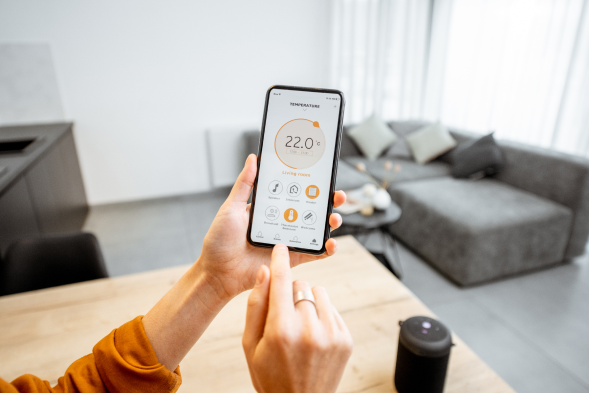Landlords Smart Heating

Landlords, Take Smart Control And Save £100’s Per Property Every Year.
If you are a landlord with multiple properties and you pay for the gas and electric “All Inclusive Rent” then you could save hundreds of pounds per year per property on your energy bills by installing smart heating controls.
We at Smart Heating Controls Leeds have been fitting these controls for Landlords that are tired of wasting money on energy. By installing these controls landlords can control the heating in their properties from a mobile phone, tablet or computer. They can control the maximum temperature the property can reach and control the heating at anytime from anywhere in the world.
Landlords Smart Heating Controls Installed - From £75 Per Property
Note our prices are for the installation of the controls only, we can advise you on the best controls to suit your needs, the most cost-effective controls are approximately £85 including vat as per September 2023.

Smart heating controls have gained significant popularity among landlords and property owners in recent years due to their potential to enhance energy efficiency, convenience, and cost savings. These cutting-edge systems provide a range of benefits that make them an attractive option for both landlords and tenants.
Smart heating controls, often referred to as smart thermostats, offer remote control and monitoring of heating systems through smartphones or other connected devices. Landlords can set heating schedules, adjust temperatures, and even receive alerts if there are any unusual fluctuations in temperature or system malfunctions. This level of control not only helps landlords maintain comfortable living conditions for tenants but also allows them to better manage energy consumption, leading to potential cost savings.
For landlords with multiple properties, the ability to remotely manage heating systems is a substantial advantage. They can ensure that vacant properties are kept at an appropriate temperature to prevent issues like frozen pipes while minimizing energy usage. Additionally, these controls enable landlords to adjust heating settings before a new tenant moves in, ensuring a comfortable living environment from day one.
Energy efficiency is a crucial aspect of smart heating controls. These systems often come equipped with features like learning algorithms and occupancy sensors. Learning algorithms analyse the occupants’ patterns and adjust the heating schedule accordingly, optimising energy usage. Occupancy sensors detect if a property is vacant and can lower the temperature automatically, further reducing energy waste. This focus on efficiency is not only environmentally friendly but can also result in reduced utility bills for both landlords and tenants.
Another benefit of smart heating controls is the potential to increase the value of a property. Properties equipped with modern, energy-efficient amenities tend to be more attractive to potential tenants or buyers. Landlords can market their properties as being equipped with state-of-the-art heating systems that provide comfort and convenience. This can also contribute to longer tenant retention rates as tenants value the benefits of such systems.
However, it’s important to consider potential challenges. Installation costs can be a concern, especially for landlords with multiple properties. Additionally, tenants might have varying levels of technological familiarity, which could lead to confusion or difficulties in using these systems. Landlords should provide clear instructions or even demonstrations to ensure tenants can take full advantage of the technology.
Privacy is another consideration. Smart heating controls often involve collecting data on heating patterns and occupancy. Landlords must ensure that tenant privacy is respected, that data is handled securely and transparently. Addressing these concerns through clear communication and proper data management practices is essential.
In conclusion, smart heating controls offer landlords a range of benefits, from remote management and energy efficiency to increased property value. The ability to optimise energy usage, provide comfortable living conditions, and potentially reduce costs makes these systems an appealing choice for landlords looking to enhance their property management approach. As technology continues to advance, the integration of smart systems into rental properties is likely to become even more common, reshaping the way heating and energy management are approached in the real estate industry.

